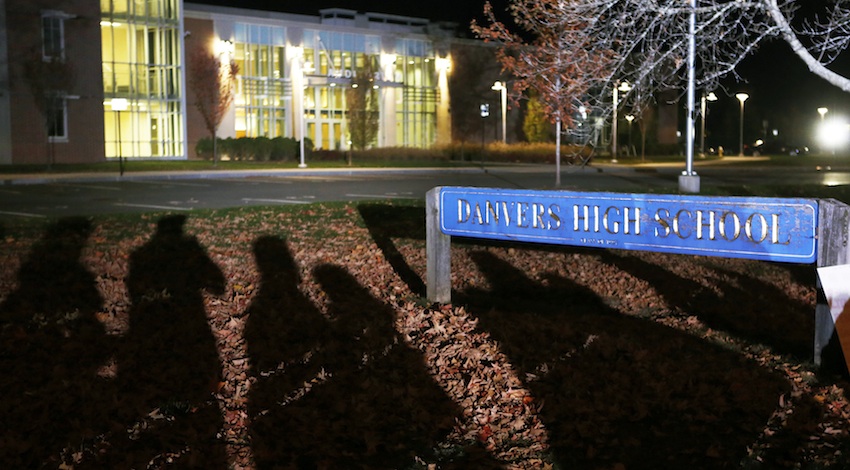What Happens to 14-Year-Old Philip Chism If He’s Found Guilty of Murder?
When the Essex County District Attorney charged 14-year-old Philip Chism as an adult for the murder of Danvers High School teacher Colleen Ritzer, he touched on an area of law that’s undergone a lot of change recently. The fate of 14 year olds tried as adults and found guilty of murder in Massachusetts is currently in flux. (Chism is still innocent until proven guilty of course.) We asked New England Law Professor David Siegel, who has written on the sentencing of juveniles, to weigh in:
1. It’s up to the District Attorney to decide whether to try a juvenile offender as an adult.
“It’s not quite the whim of the D.A.,” says Siegel, but there are certain crimes that afford a prosecutor the option of trying a juvenile 14 or older as an adult, including felony offenses and a youth’s prior record. Chism’s murder charge, obviously, carries that option.
2. What happens when a juvenile is found guilty of homicide is up in the air.
In 2012’s Miller v. Alabama, [PDF] the U.S. Supreme Court decided that it violated the Eighth Amendment’s protection from cruel and unusual punishment to automatically sentence someone to life in prison without possibility of parole for a crime committed before the 18th birthday.
“For a homicide offense,” Siegel says, “the court needs to have an individual sentencing hearing that takes into account specific factors like the juvenile’s youth, their family situation and educational history, and their prospects for reform or change in the future. Because the court recognized, obviously, that kids are still changing and still developing.” A court can then assign the sentence of life without parole, but they have to consider other sentences first.
3. That Supreme Court decision affected Massachusetts, but the state hasn’t yet figured out how to deal with it.
“So Massachusetts had, effectively, an automatic sentence of life without parole for first degree murder. So anyone who was 14 or above who was convicted of first degree murder got the sentence of life without parole. That was the only sentence available,” Siegel says. The Supreme Court’s decision made that approach unconstitutional. “However I can’t tell you what the constitutional provision is going to be for sentencing or even trying a juvenile in that situation because it hasn’t yet been decided,” he says. The governor and legislature are currently working out a new sentencing procedure that will be in line with the Supreme Court’s ruling, but they haven’t passed one. If Chism is found guilty, he’ll be one of the first for whom the new rules will certainly apply. (What happens to those sentenced before the ruling is also still unclear.)
4. Our understanding of adolescent psychology and neuroscience has changed a lot too, and the law’s treatment of them has changed as a result.
In the last decade or so, new research has suggested that the part of the brain that controls the kind of higher order thinking that allows people to make rational decisions and forecast the consequences of their actions develops much later than other functions, sometimes not until a person reaches their 20s.
“I know this comes as a shattering surprise to anyone who has had a teenager, but this has been confirmed by social science recently,” Siegel says. “As a result of that, the courts have started to take that into account in sentencing.” So states still have the right to punish a juvenile with life without parole for a horrific crime, but they have to at least consider another sentence first.



